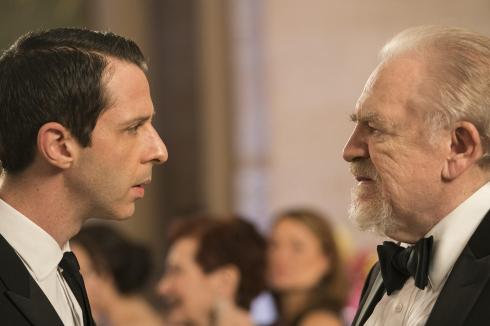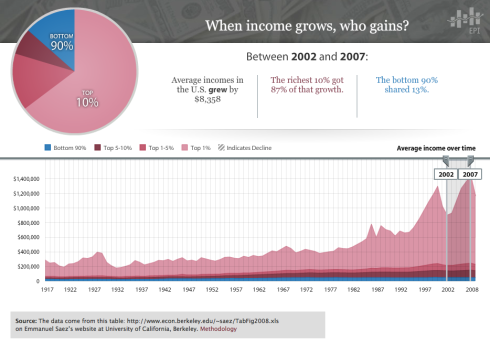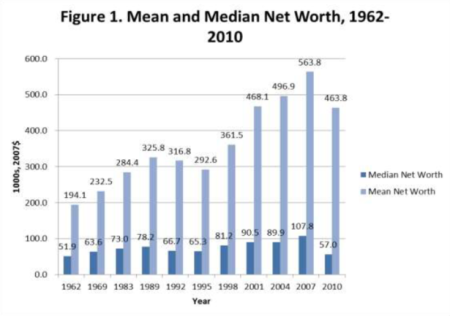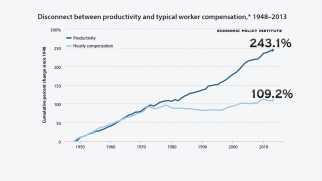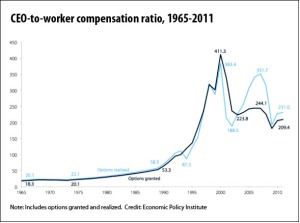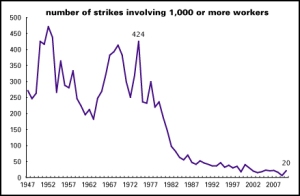
Visual synecdoche for the past thirty years of political reporting
600 million years ago. In a fetid swamp of decay – the opaque water a slurry of rotten vegetation, air bulging with the upper bands of UV radiation, brown brown everything brown – a lungfish heaves itself up onto densely-packed shitmud. It can’t tell. Its senses cannot distinguish water from air, or light from dark.
Immediately the poison blanket of radiation falling from the sun starts to break its DNA. Enough slams into its cells that, in the few seconds before it collapses back to the stinking darkness of its sludge, the seeds of bulbous tumors are planted in every organ.
Everything bulges. Everything hurts. Suddenly it bumps into something in the blind muck. Maybe the diaphanous remains of a corpse. It robotically fucks whatever the thing is. The mindless twisting is weak and languid but still tears its cancer-ridden body down the length of its spine. The now inert, ragged, floating mass of carcinoma does not bob to the surface. The water is too thick for that.
The pre-fatal intercourse happened to have been with another (living) lungfish. And by a billion-to-one odds, the tangle of broken DNA in its malignant come twisted into place to produce offspring with the first photosensitive cells in vertebrates.
We are able to see because a tumorous shitfish blindly fucked itself to death in fowl brown filth.
There’s a silver lining to every situation, no matter how objectively disgusting.
Which brings us to Trump, and the media, and centrism. What are the silver linings, what are we able to see, now that it’s obvious to all what Republicans are as a party?
(skip down to The Prestige to get the summary answer)
The Supporters
They didn’t come from nowhere, these Trump supporters. They are Republicans. They were Republicans. Ten years ago, Republicans were people who, ten years later, would vote for Trump. (And let’s not forget the majority of the rest wanted Ted Cruz, who is more horrifying than Trump but, thankfully, butt-ugly as a shitfish.)
Here’s how the NY Times characterized the largest blocks of Republicans in 2005:
TRADITIONAL VALUES BLOC Primarily interested in the general decline of morals in society and the breakup of the family rather than abortion and gay marriage. Education is their top issue. VOTERS: Working and middle classes, suburban and exurban
ANTI-WASHINGTON BLOC The largest group. Dislikes regulation, government waste and pork-barrel politics; would move power to the states. VOTERS: Red-state voters who hate blue-state voters
BIBLICAL BLOC Religion drives politics. Allegiance is to causes, not to party unity. For this group, President Bush did not do enough to save Terri Schiavo. VOTERS: Conservative Christians
This was after 20 years of Rush Limbaugh, who was months away from “Barack the Magic Negro”. This was after the second-most-popular Republican reason for voting in 2004 was to “keep the faggots from gettin’ marital tax breaks and visitation privileges, as Jesus intended”. After torture became a plank of the Republican platform, after Katrina and the “shoot the niggers looters yeahhh shoot ’em all good ‘n dead” rhetoric.
This was shortly before Bill O’Reilly busted a vein over immigration like he lost his favorite loofah, with Geraldo Rivera (one not widely known for being able to pick up subtle nuances of sociological trends) warning “You want your viewers to go door to door, ‘You’re an Illegal, I’m going to take you outside and do something to you.’ ”
To say nothing of Sarah Palin, Michelle Bachmann, Jim DeMint, and the rest of the unending parade of lazy authoritarians in the Web 2.0 era.
I wouldn’t use “disliking pork barrel politics” as a descriptor for these people, myself.
So, Trump’s Silver Lining Lesson Number 1: Pay attention to what’s happening, because the media won’t do it for you. Clear as day, and in real time, it was obvious that the Republican party was becoming the incompetent clowning fascism Trump and Cruz are championing.
Why wasn’t this a prominent theme in the media?
And why didn’t you realize it?
The Media
https://twitter.com/ClaraJeffery/status/776418751763755009
https://twitter.com/joftius/status/776435896098840576
Clara Jeffery is Editor-in-Chief of Mother Jones. Broadly pro-union, anti-incarceral state, anti-middle class wealth stagnation, and all the other things you’d expect out of a publication that does actual journalism. And yet, the above.
Meanwhile, Krugman can’t figure out why the media are “objectively pro-Trump”:
It’s not even false equivalence: compare the amount of attention given to the Clinton Foundation despite absence of any evidence of wrongdoing, and attention given to Trump Foundation, which engaged in more or less open bribery — but barely made a dent in news coverage.
[…] Brian Beutler argues that it’s about protecting the media’s own concerns, namely access. But I don’t think that works. It doesn’t explain why the Clinton emails were a never-ending story but the disappearance of millions of George W. Bush emails wasn’t […] [or] the revelation that Colin Powell did, indeed, offer HRC advice on how to have private email the way he did […]
And I don’t see how the huffing and puffing about the foundation — which “raised questions”, but where the media were completely unwilling to accept the answers they found — fits into this at all.
No, it’s something special about Clinton Rules. I don’t really understand it. But it has the feeling of a high school clique bullying a nerdy classmate because it’s the cool thing to do.
These are related.
Think of your workplace (you know, the place you’re sitting right now). The industry it’s in. There are all sorts of weird idiosyncratic ways of doing things, of seeing the business, that are essentially irrational, right? That were created out of an organic process which no single person or entity is directing? Maybe sales have to be conducted in a certain way. Or a concept has to be explained like this and not like that in order to avoid looking like a rube.
The equivalents in journalism:
- Boomers are right and the kids today are wrong
- Republicans are serious
- Anything bipartisan is good
These are all ubiquitous enough to be cliches. The editor-in-chief of a lefty magazine can be confidently illiterate when bashing the young’uns; Erik Erikson can go on CNN for years; I can offer $100 for a pejorative use of “bipartisan” confident that it can’t be claimed. (Unless, of course, it’s pork-barrel spending, which is an example of why “Republicans are serious” for “opposing” it.)
For other examples, see Charlie Pierce, now and always.
The media’s treatment of Trump isn’t anything more than “Republicans are serious”. Trump is a Republican. He’s serious.
Like other Republicans before him, he’s serious when he says he has a “secret plan” to end the war; when he says tax cut incontinence will create a bazillion jobs; when he advocates immigration policy from 1933 Weimar Germany.
Hell, even Trump’s obvious and clumsy grifts have a rich history within his party.
Trump’s Silver Lining Lesson Number 2: Political journalism has its own dynamics that have nothing to do with the truth.
It’s clear as day now that the media doesn’t cover Trump objectively, but slots him into their typical political coverage: that is to say, it will treat any objectively insane policy proposal of his in a sober and serious manner.
But . . . why?
And why didn’t you notice it before?
The Centrist Ideology
“I’m not an ideologue.” “Both sides go too far.” “I don’t slavishly follow a party, I make up my own mind.” “I’m a moderate.” “I’m a fiscal conservative and a social liberal.” “I just care about what works.”
These are the siren calls of centrism, the ideology that marinates political coverage. The truth lies somewhere in the middle of the extremes of left and right, and partisan cheerleading for unbendable ideas blinds people from seeing what needs to be done. What could be more reasonable, more obvious, than that?
What’s missing is that the “extremes of left and right” do not exist out there in the world. They have to be built rhetorically. Picking a middle from the extremes involves picking extremes. What is the opposite of $4 trillion of tax cuts: infrastructure spending, or preventing the Federal Reserve from crushing wage increases?
Besides extending a spatial metaphor into uselessness, picking a middle from the extremes requires two extremes. If one set of ideas is generally plausible and sane, and the other set the equivalent of slapping a hornets nest with your hand to kill all the stingy things inside, there’s no need to bother with the second set, is there.
Finally, locating a political philosophy “in the middle” requires a large set of assumptions. A small sample:
- that political institutions are taken for granted the way they are
- that the norms of political behavior are taken for granted
- that the political economy framework within which policy is enacted is taken for granted
- that the goals of the policies “in the middle” have already been determined
Centrism is thus inherently an ideology of the status quo; it is inherently Establishment.
That the media should adopt centrism as their implicit frame for political coverage could be due to a lot of reasons: not wishing to upset access with their sources; subconsciously defaulting to the ideas that benefit the class and social strata most journalists come from; adapting to the political framework set out by their corporate owners.
But whatever the reason, notice that the centrist framing of political coverage drives the three trends discussed above.
- Boomers are the Establishment, run the institutions, and are tremendously invested in the status quo
- Republicans need to be Serious so that there can be “two sides” to be “in the middle” of
- Bipartisanship is “meeting in the middle”; in other words, of the status-quo institutions continuing to run as they have been run
Trump’s Silver Lining Lesson Number 3: The media’s coverage of Trump is not due to Trump, but due to the way they cover political events. The centrist ideology which frames political coverage necessitates covering Trump in a certain way. It necessitates covering Republicans a certain way. It necessitates covering issues a certain way.
And that’s why it took Trump waving his tiny hands around for you to notice how the media covers politics with a centrist frame: it took someone so obviously unfit and hateful, so cartoonish, so small-handed to demonstrate the framework the media uses to cover politics.
The Prestige
Here, then, in three sentences, is the point:
The media’s centrist framing of political coverage over the past thirty years helped create the conditions for Donald Jay Trump. Pay attention to that centrist framing. It’s insane and brings evil into the world.
That’s the reason for this blog.
h/t LGM for the image
